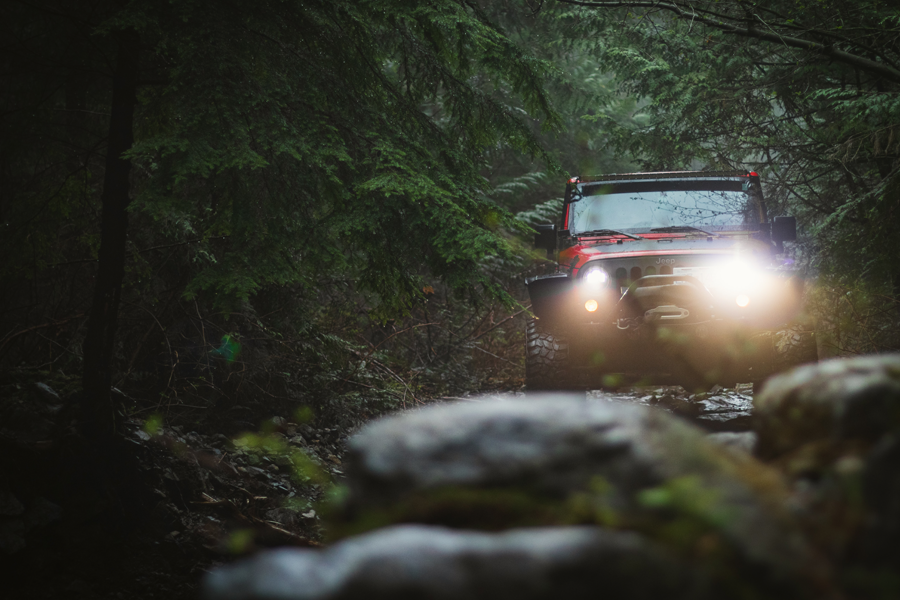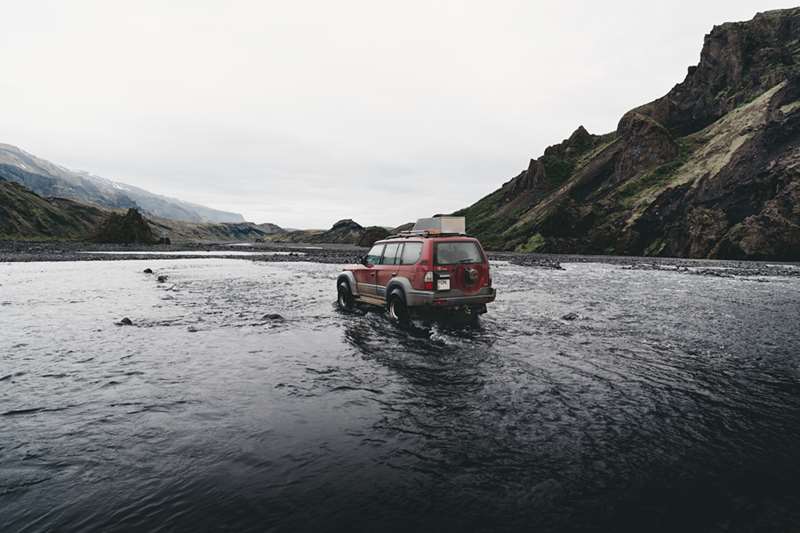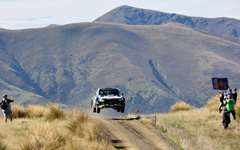We live in a country that’s perfect for off-roading thanks to an extensive network of country roads and tracks, but what exactly do you need if you’re looking at taking up the hobby?
It helps for beginners to always be prepared, so here are some essentials that you should always carry in your 4WD.
Rescue kit
If your vehicle doesn’t have an electric winch on the front bumper to extract you from sticky situations, then don’t worry - you can still add a winch accessory kit to aid in recovery. A couple of recovery straps, some shackles and a jack can help you get out of most situations.
Recovery boards and shovels
If you find yourself in a tough situation with no help in sight, you can buy specialised nylon recovery boards from off-road retailers, designed to be placed under your tyres so you can easily drive out – whether in sand, mud or snow. The boards are lightweight and much easier to cart around than large planks of wood. They can also double as shovels to excavate your wheels.

Spare tyre
Not only are tyres the most important component on your vehicle, they’re also the most frequently damaged so it’s important to carry a spare tyre in your vehicle at all times.
Air pump
When driving across rocks, dirt and sand, its important off-roading vehicles reduce their tyre pressure to improve traction. You’ll need to purchase a quality 12V air pump, and then plug it in to your accessories socket and you’re set.
The pump also comes in handy if you happen to develop a slow leak in your tyre.
Always make sure you re-inflate your tyres before going back onto public roads.
 Torch
Torch
When driving after dark, always make sure you have a robust torch so you can see what you’re doing as you try to repair or recover your vehicle, or even just put some air in your tyres. We also recommend a set of compliant fog lights wired through a separate circuit as a backup.
Toolkit and emergency equipment
The more extreme the track, the more likely it is you'll damage parts of your vehicle, and if you venture deep into the NZ bush, you won’t have access to AA Roadservice, so carrying a toolkit and safety equipment is essential.
Besides everyday tools, there are a few lifesavers worth carrying with you. Items like duct tape, oil, rope, cable ties, spare fuses and a spare serpentine belt could be the difference between getting home for dinner and being stuck in the bush overnight. In the event of the latter happening, always make sure you carry warm clothing and a blanket in your vehicle. You never know what may happen whilst you are in an isolated situation so a safety kit with a fire extinguisher, a first aid kit, water and a back-up phone are advisable.
We asked Auckland 4WD Club Secretary Andy Webb for his top tips for novice off-roaders:
1) Not knowing your vehicle A simple read of the manual goes a long way to knowing exactly how you should be using your vehicle and would avoid the horror stories of people activating traditional 4WD systems on sealed roads.
2) Not having a back-up plan Someone who knows your timeline can check on things if you don't arrive on time.
3) Panicking Beginners usually panic when things start to go wrong off road. Proper training by an accredited provider or peers in a 4WD club can be the best ways to learn. Otherwise, a calm and considered approach to recovery will hopefully stop things getting worse.
Adventuring into New Zealand is a fun pastime for Kiwis and we’re truly blessed with many places to explore. Before jumping in your 4WD and pointing your headlights toward the dunes, always make sure you’re kitted out with the essentials and the knowledge to stay safe.
Content courtesy of AA Motoring, Images: Unsplash





